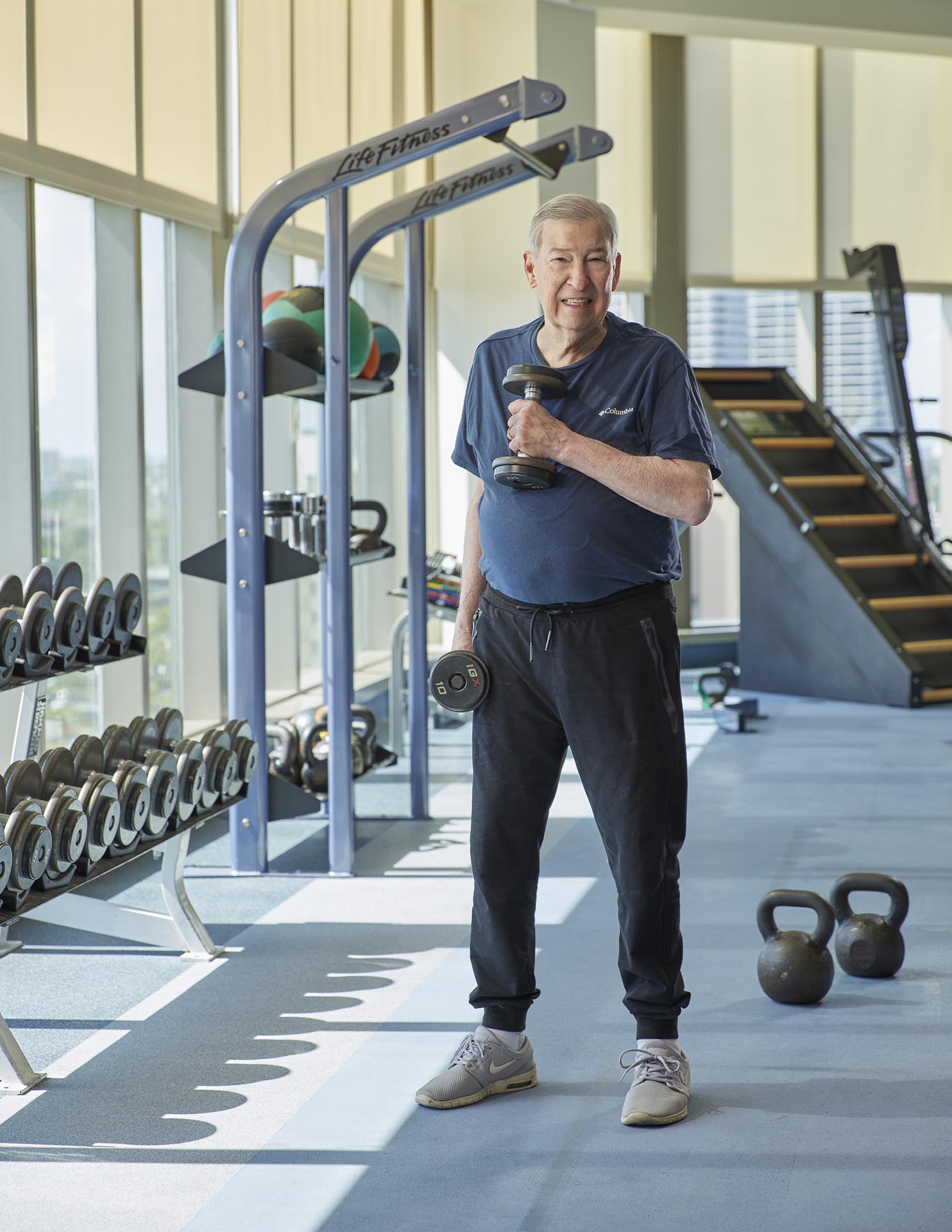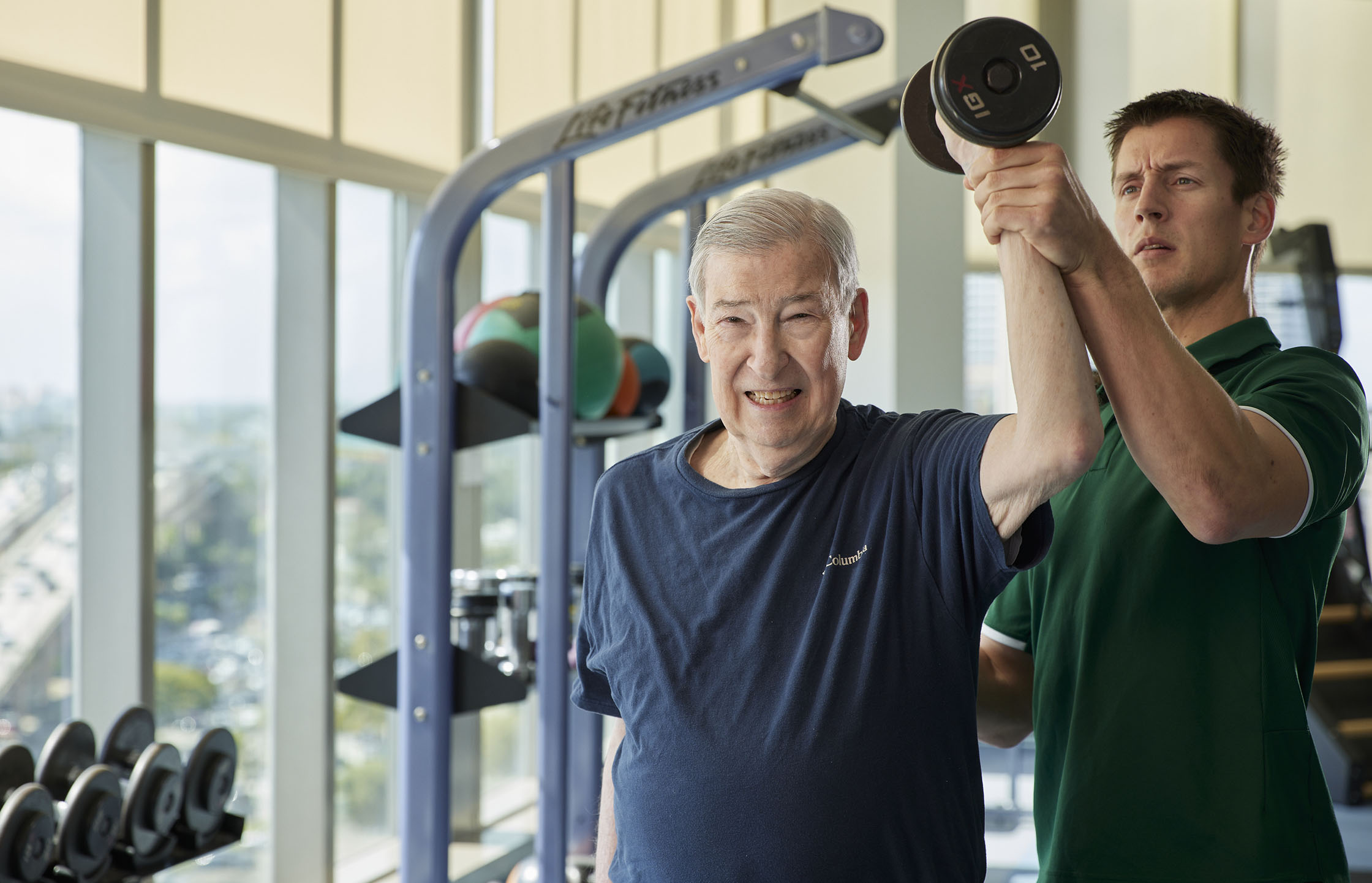Working Out Is Working
Exercise programs help keep patients strong
By Ana Veciana-Suarez
Photography by Jeffery Salter

John McGuire stays strong at the UHealth Fitness & Wellness Center
J
ohn McGuire’s battle with prostate cancer turned out to be a protracted one. First diagnosed at the end of 2011, the cancer has come back twice. The last time, the treatment weakened McGuire, and his physical recovery was further complicated when he fell during one of his daily walks, hitting his face and tearing his rotator cuff.
But more than two years ago, when he began exercise classes offered by the Cancer Survivorship Program — both one-on-one and group sessions — he noticed a change.
“The exercise has allowed this 77-year-old to keep in shape as much as I can, especially after what I’ve gone through,” McGuire said. “The objective was to recover my strength, and I have.”
He attributes his progress to the “charisma” of Sylvester exercise physiologist Christopher Fitzmaurice. “He is so personable and engaging that you can’t help but leave with a positive kind of mind,” McGuire said.
Fitzmaurice creates personal exercise regimens for each patient. “I basically provide an exercise or general movement plan depending on what they want to achieve, whether it’s weight loss, strengthening, or mental health,” he said.
Just as important, however, is establishing a long-term plan that people will continue long after treatment ends. Unlike other recovery therapies or drug protocols, staying physically active should be “a lifelong commitment, something they do because it’s good for them and because they enjoy it,” Fitzmaurice said. ![]()



